Rzeka Czasu: River of Time at Uno Fest 2016. An interview with Grace Salez.
Rzeka Czasu us part of Intrepid Theatre’s Uno Fest 2016. I had the opportunity to interview Grace Salez, the author.
What sparked the creation of this show?
The spark was a solo performance workshop that Lina de Guevara was giving at Royal Roads in 2014.
I did a short piece about my mother. Lina liked what I presented and asked if I had more material. I sent her a couple of pages worth of material – she liked what she read. I received funding to work with Lina for a month in unravelling journal entries and those were the beginning of the script that took 6 months to put together.
How long have your been working together as a collective and how did the collaboration come about?
When the script was done (during my script writing time Lina continued to be my mentor) Lina spoke about it to Janet Munsil for a read and Janet wanted to have us present a workshop production of it at UNO FEST. The invitation brought about the core group collective to work together to get the story to an audience. I was surprised at how easily and quickly Barbara Poggemiller, actor, and Enrique Rivas, sound composer came on board. Lina made that happen as I am not from a theatre background. As a collective we have been working together since January 2016. As well, Michael Gosselin, Lighting Designer, Kirk Schwartz, Projectionist, and Paul Hilton, Stage Manager have come on board to make this workshop production happen for UNO. We the collective are so grateful for their collaboration with us.
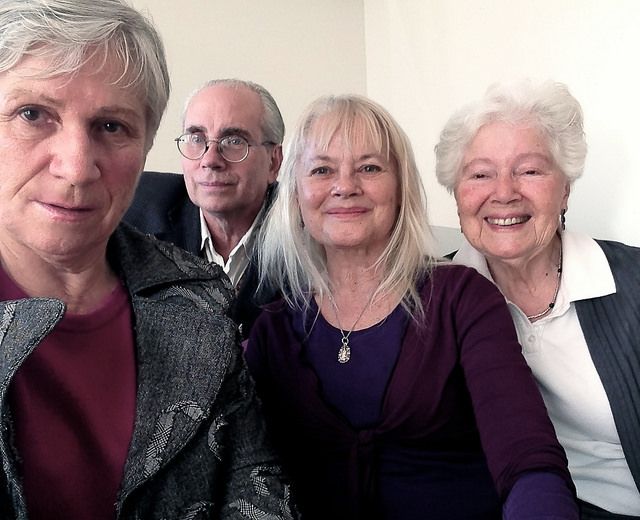 Grace Salez, Enrique Rivas, Barbara Pogemiller, Lina de Guevara. Photo: Intrepid Theatre
Grace Salez, Enrique Rivas, Barbara Pogemiller, Lina de Guevara. Photo: Intrepid Theatre
Who will be interested as a potential audience member?
Various entry points in this performance for different interests. There is the audience who is interested in how someone survived the horrors of war, in particular concentration camp, labour camp, and bombings. There is the audience who is interested in mother daughter relationships fraught with tension. There is the audience who is interested in how PTSD and other such mental disabilities affect family dynamics. There is the audience who is interested in a story about refugees and how they adapted to a new country. And then there is the audience, like myself, who want a narrative that spans a full lifetime of a person, like a novel, with all the ups and downs of a lived life, a bit of drama, a bit of laughs, bit of truth, a bit of maybe, and what nots and some tears, inspiration, reflection, etc.
Is it based in or informed by previous work?
I am a performance and video artist. My work in performance and video, not always, but on some projects have been about my mother or father and their experiences during World War Two, concentration camp, meeting in a refugee camp, and emigrating to Canada. Certainly, one recent video installation performance I did about my father help inform me on how I might approach my mother’s story, in that I didn’t want it to be a video/film, but that I saw it as a live performance for stage with an audience.
What do you hope to inspire in your audience?
That our individual and collective past history is important to remember and understand. We need to reflect on past events that makeup that history as they affect our generation and the next. To reflect and unravel that history that influenced our parents, grandparents, and great grandparents helps us to move forward, hopefully in a peaceful, thoughtful, loving way as we make our way through a very complicated life time together.What would you say to entice someone to come?
Something I’ve been saying all my life “I was born in a refugee camp and my parents survived concentration camp”.
The reaction is always the same, “Really!” and they want to know more.
At one point I remember reading that you were a bank teller when you were first introduced to the work of Puente Theatre. What shifted for you, to allow you to even contemplate writing a monologue/play?
Yes, I was working at The Bank of Montreal, known as BMO now. When I saw a production of Lina’s about emigrant Chilean women I was very moved to see a play that reflected my life experiences of being brought up by a woman who had experienced the traumas of political upheavels. Up to that point I only saw in theatre an Anglo Canadian American point of view, and I certainly enjoyed or was moved by some of those productions, but when I experienced Lina’s play I remember saying to myself, “One day I want to work with that director” and in the next breath I said to myself, “your a wife, mother, and a bank teller! How the hell is that going to happen!”
About 5 years later, after Lina’s production, at 45 years of age I went to Camosun College for their 2 year introductory art program, followed by 3 years at Emily Carr Institute of Art and Design. I came out of that incredible journey with a BFA in multimedia and a major in film and video. I’ve been writing short scripts for my independent very personal point of view short video projects, so story telling was not new to me when I got involved with this script. But, what I had in mind was a max 15 to 20 minute monologue that I was thinking of performing myself. Once I started the process of unravelling my journal entries with Lina mentoring me, well I ended up with a 20 page script (actually it was about 28 pages at first) and it became clear to me that I didn’t have the ability to carry a 80 minute monologue on stage in front of an audience. When I came to that revelation, Lina smiled and said she had the perfect actor for this play, Barbara Poggemiller and then Enrique Rivas came on board as soundscape composer and we had our collective.
Do you have any “words of wisdom” for others who have stories to tell but perhaps lack the courage and conviction to begin?
My advice to them would be, find a good mentor. I couldn’t have written this play without Lina’s mentorship.
She has been here for me every step of the way and for that I am grateful. Couldn’t have done it without Lina.
Above all, as relates to River of Time—what is it important to remember?
War, politics, upheavals, concentration camps, labour camps, refugee camps, emigration, discrimination, trauma, all of this took its toll on a woman, but a new beginning in a foreign land, Canada, and time and family, like a prescribed ointment – applied generously and faithfully helped heal some of the wounds. In the end we are reminded that her resilience in the face of all that upheaval is what we need to take away with us – in spite of all the evils of war, the truth of the good in us all prevails.
Rzeka Czasu: River of Time, written by Grace Salez
Performed by Barbara Poggemiller
Music by Enrique Rivas
Directed by Lina de Guevera
Sunday May 22, 8:00pm/Tuesday May 24, 6:00pm
Metro Studio
Tickets $20
May 22nd is Pay What You Can
Uno Fest passes $85 for 5 shows.
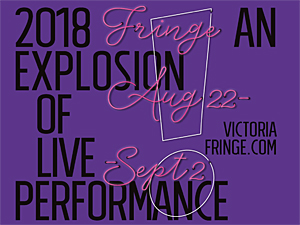
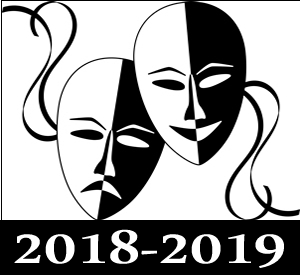

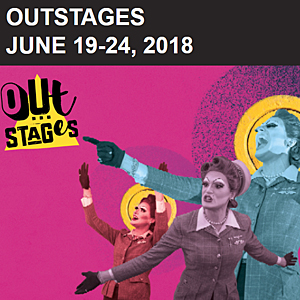
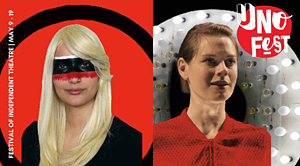
Hello Janis,
Thank you so much for your interest in how we came about to being a collective and in wanting to hear how the ‘spark’ came about to tell this story.
Best Wishes,
Grace Salez